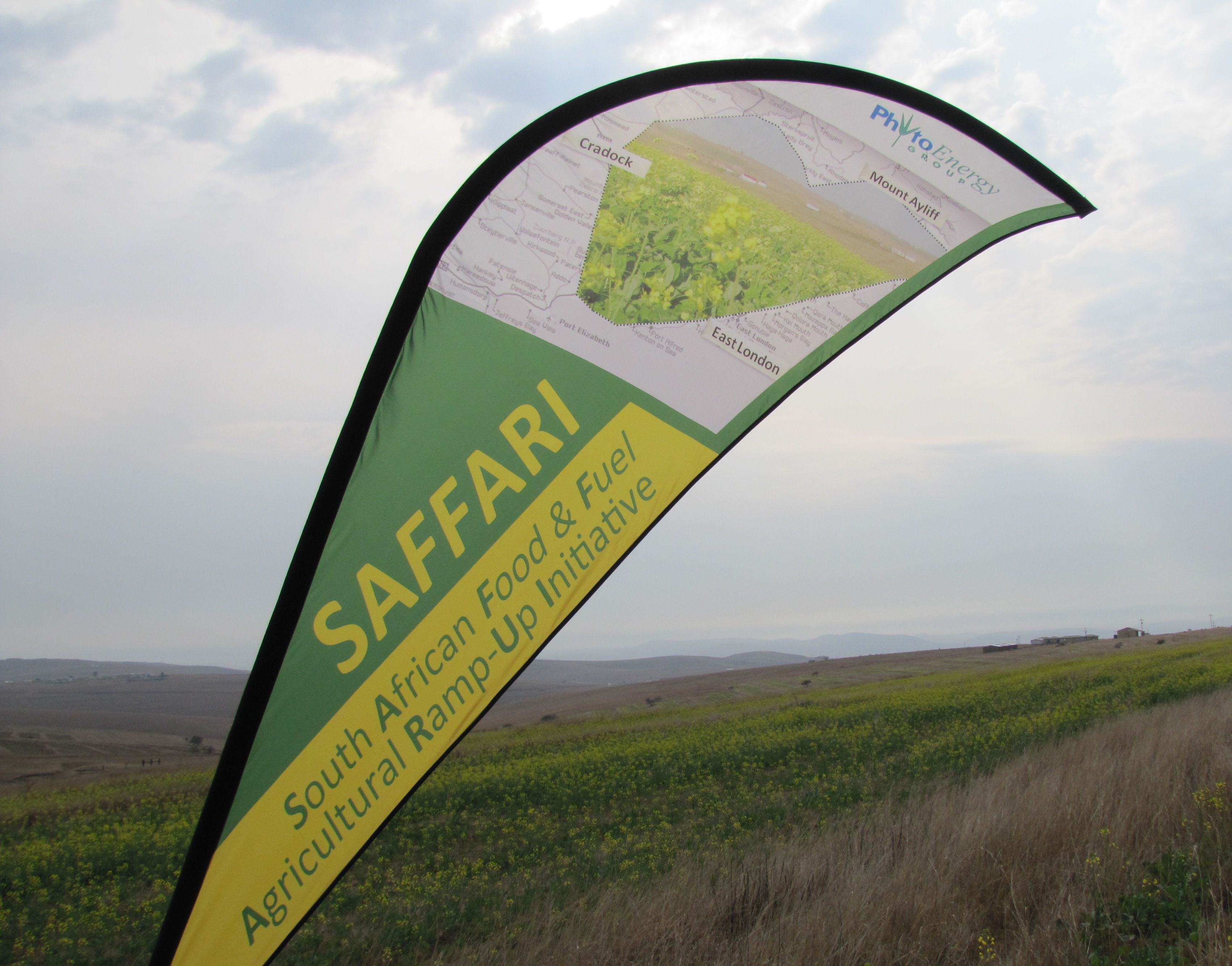
The SAFFARI Initiative
The SAFFARI Initiative was borne from the challenge of how to reconcile a vision to provide poor communities in the Eastern Cape with the necessary skills, guidance and opportunities to allow for their sustainable economic self empowerment while on the other hand, facing the reality that the required “on the ground” human resources are not available.
This reality resulted from the distinct lack of opportunities in the Eastern Cape, which attracted the youth to cities, in the hope for gainful employment and rewarding opportunities.
Furthermore, growing two maize plus a soy crop in rotation with the feedstock canola for biodiesel, thus 4 crops in three years, enlarge the growing territory, while providing food, income and more job opportunities.
The Eastern Cape Province in South Africa – A Harsh Reality
The Eastern Cape is widely acknowledged and accepted as being the most impoverished province in South Africa. Ironically, it is endowed with generous tracts of land, which are notoriously well suited for agriculture, having fertile soils – sadly however, they lie unused and uncultivated.
The “Emerging Farmer Mentorship Programme”
It is against this background, that the opportunity was initially identified, to cultivate these unused expanses of lands, making them productive. In the process, the communities who would be prepared to participate would be placed in a unique situation whereby they would be directly empowered to improve their quality of life, by means of taking ownership of their plight and develop themselves back into the market. This would be facilitated by PhytoEnergy of Southern Africa, by means of support in the areas of mentorship, skills transfer, administrative assistance, the provision of a guaranteed market, provision of enabling assets such as farming tools and vehicles, and others.
In response to this, PhytoFarming launched the Emerging Farmer Mentorship Programme on April 23, 2012. The platform included a meeting with the community elders and the leader at Nywarha to undertake the following:
- 50 hectares of canola cropping to begin with immediate effect; and
- The Phyto-team is to prove to the community that they are an organisation that can be trusted and ultimately deliver on their promises.
The community at Nywara accepted the proposal and invited PhytoFarming to proceed with the proposed plan.
Soon however, it became clear that the ‘vision’ was dependant on communities which would demonstrate not only interest, but also have the resources in the form of community members available to work the lands. Sadly, this was a hurdle. PhytoEnergy were made aware of the fact that the majority of the youth of the communities had moved away to larger cities, in the pursuit of finding gainful employment, as their prospects in the communities themselves had a very bleak outlook. This resulted in communities comprising of elderly members, unable to part-take in the physically demanding activities required by agriculture.
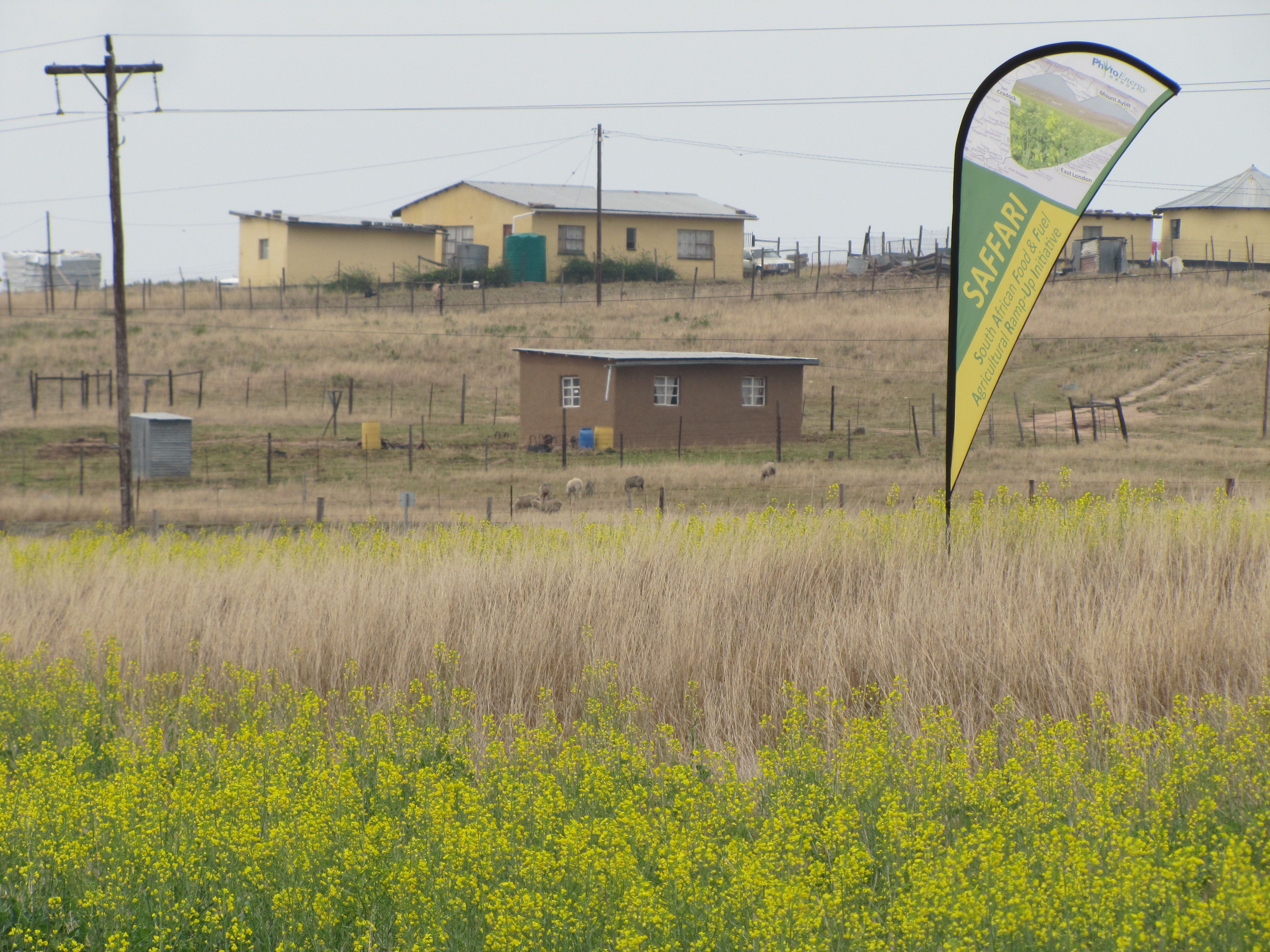
Trial canola fields in Nywara / Eastern Cape
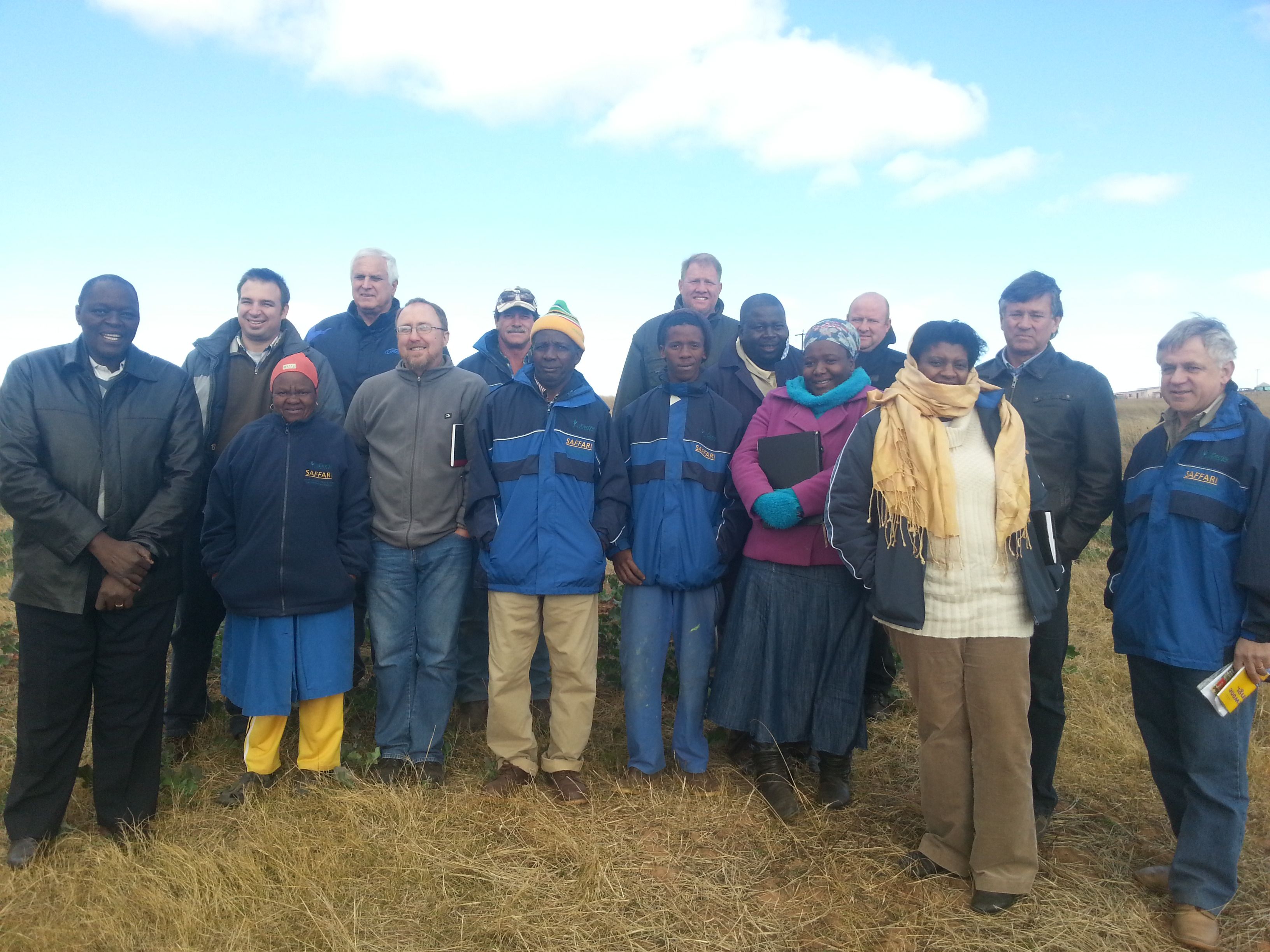
Citizen of Nywara with PhytoFarming-Team
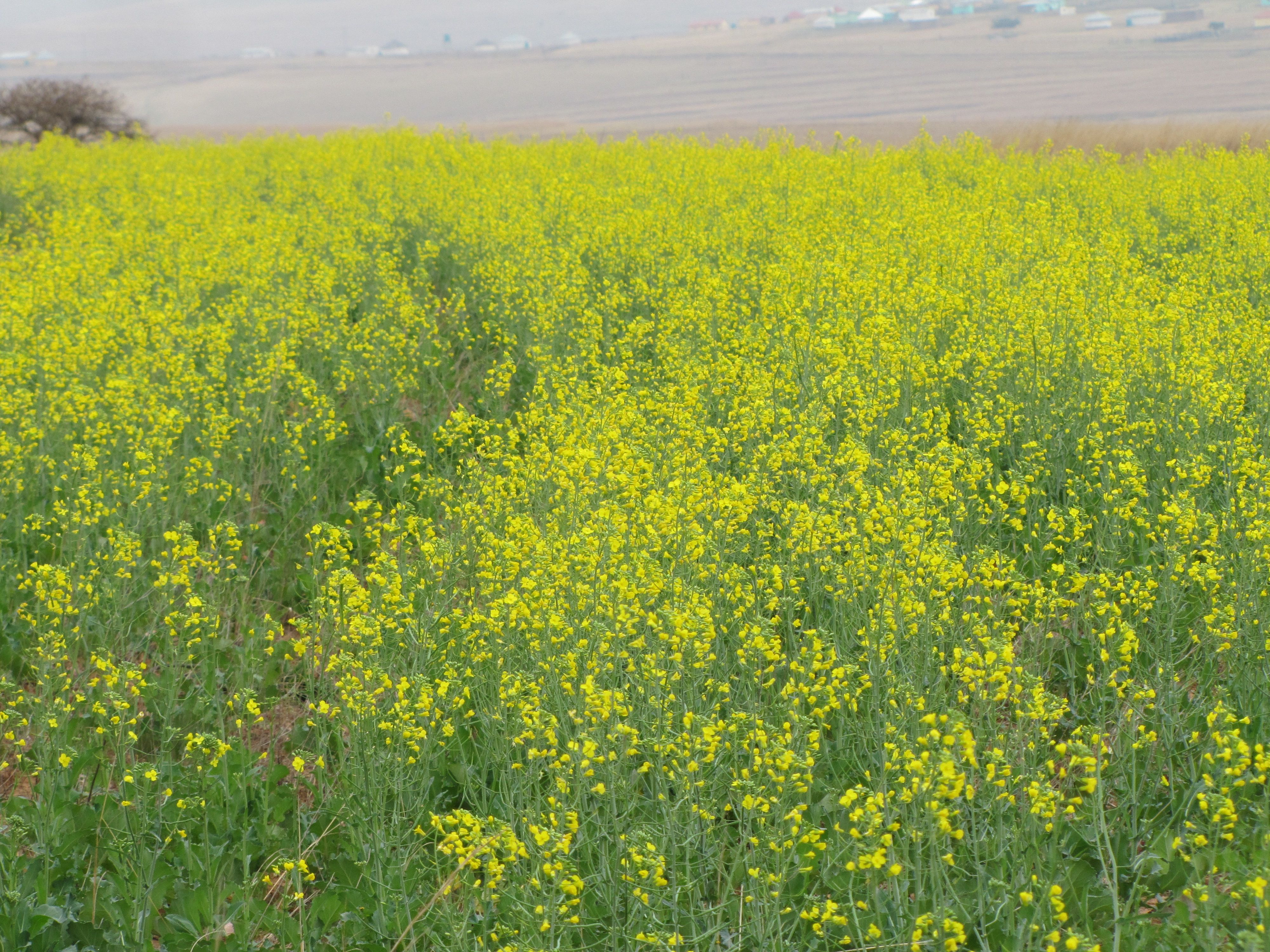
Trial canola fields in Nywara / Eastern Cape
Phyto Farming’s response – the SAFFARI initiative
To redress the current status quo and to provide conditions which are not only conducive to, but also attractive in presenting opportunities to the youth, PhytoFarming developed the “South African Food & Fuel Agricultural Ramp-up Initiative” – SAFFARI.
Effectively, SAFFARI provides the vehicle to achieve the following overarching objectives:
- Large scale crop cultivations within the Eastern Cape;
- Upliftment of the undeveloped Eastern Cape AGRI sector;
- Create conditions and opportunities conducive to bringing the youth back to the community lands; and
- Working with selected and appropriate community members that are willing to learn, make a difference and assist with the overall success of all cropping activities.
SAFFARI has therefore been established as the vehicle to facilitate on-the-ground job creation, skills transfer, and mentorship, within the constraints presented to PhytoFarming by the lack of resources.
Right is a schematic of the SAFFARI structure, as it applies to the two communities which have been identified.
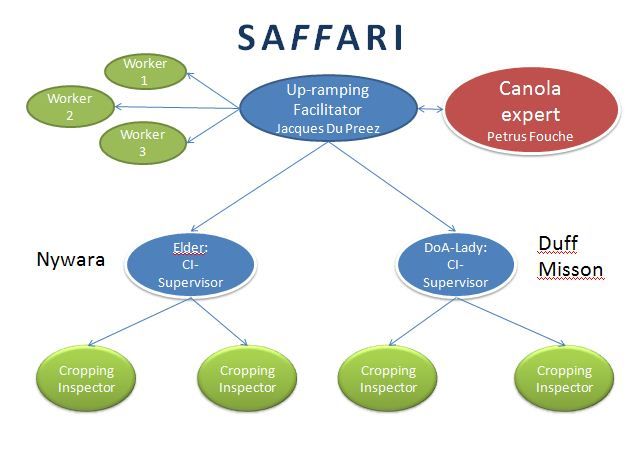
The proposed model in simple terms provides paid employment to selected and appropriate community members that will make themselves available to undertake the following:
- Willingness to learn about Agriculture;
- Work side by side with the Contractor in undertaking the necessary activities; and
- Develop a practically orientated knowledge base which will allow emerging farmers to become small scale commercial farmers in their own right.
Implementation plan
To support the model, the following structure has been implemented, with three workers being employed at both Nywara and Duff mission namely:
Crop Supervisor (1) - Maintain overall oversight and accountable for smooth running of activities which includes the management of Crop Inspectors.
Crop Inspectors (2) – Daily involvement in all agri-related activities.
The appointed Ramping-Up Facilitator, namely Mr. Jacques Du Preez is responsible for all soil preparation and planting activities which ensure a successful germination in both locations.
From a skills transfer, learning and sustainable farming approach, it is necessary to empower the community in taking part in the agricultural activities leading up to harvesting. As such, the Ramping-Up Facilitator, namely Mr. Jacques Du Preez, will also employ three workers to be engaged in imparting the required knowledge to cultivate the crops and also be in a position to point out improvement areas/potential risks that require additional daily monitoring.
